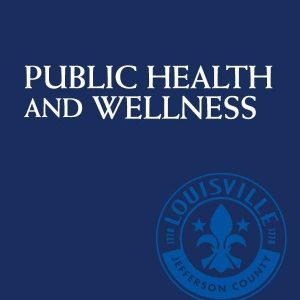 Louisville Metro’s Office of Advanced Planning and Sustainability, the Louisville Sustainability Council, and the Louisville Zoo will co-host the sixth annual Sustainability Summit on Friday, Nov. 1.
Louisville Metro’s Office of Advanced Planning and Sustainability, the Louisville Sustainability Council, and the Louisville Zoo will co-host the sixth annual Sustainability Summit on Friday, Nov. 1.
“For all of us, as individuals, as organizations, as a community and a nation, reversing climate change has to be a factor in our decisions every single day,” said Mayor Greg Fischer, who declared a climate emergency during a local Global Climate Strike event in September. “Please join the 2019 Sustainability Summit to work with community leaders and stakeholders on ways we can take on climate change with a sense of urgency, purpose, and focus.”
The Summit will feature keynote speaker Dr. Robert Brinkmann, the vice provost for scholarship and research and director of sustainability studies at Hofstra University, as well as a panel of local leaders on tackling greenhouse gas emissions in Louisville.
“The summit is our annual opportunity to gather together under one roof as concerned individuals, nonprofit organizations, school groups, faith-based groups and sustainability professionals from the public and private sectors,” said Alicia Hullinger, Board Chair of the Louisville Sustainability Council. “It is a day for celebration, collaboration, and exploration that cannot be missed if you are concerned about creating a local climate action in Louisville.”
The keynote speaker, Dr. Brinkmann, is the author of several books and articles, including Introduction to Sustainability, the first major textbook on the topic. His new book, Environmental Sustainability in a Time of Change, will be published early next year. During his speech, he will present seven ways to advance your sustainability agenda in a time of change.
The Summit will also feature a panel of local leaders from Louisville Metro Government, TreesLouisville, Harshaw-Trane, and the NAACP Environmental and Climate Justice Programiscussing how their organizations are working to combat greenhouse gas emissions. Youth activism and performance group The Mighty Shades of Ebony also will debut their new song on climate change, titled “Anthropogenic.”
The Sustainability Summit is proud to receive support from Patron Sponsor Yum! Brands; Champion Sponsors Genentech, TARC, Humana, and PNC Bank; Summit Friend Sponsor CMTA; and Supporting Sponsors Harshaw Trane, K. Norman Berry Associates, Louisville Metro Air Pollution Control District, the Partnership for a Green City, WestRock, and Stantec.
The summit will take place from 3 to 7 p.m. on Friday, Nov. 1, at the Louisville Zoo. Tickets are available to Louisville Sustainability Council members for $45, to the general public for $60, and to college students with an ID for $30.
More information and registration can be found on the Louisville Sustainability Council website: http://louisvillesustainabilitycouncil.org/2019-sustainability-summit.
 Louisville Metro is looking for someone to donate the large Christmas tree that will stand in Jefferson Square Park through the holidays.
Louisville Metro is looking for someone to donate the large Christmas tree that will stand in Jefferson Square Park through the holidays.
“This tree will be the centerpiece of Light Up Louisville and the city’s month-long celebration of the holidays,” said Mayor Greg Fischer. “We’ve been blessed with good luck in finding the perfect Christmas tree every year. If you believe you have one that fits the bill, please give us a call.”
The tree should be a spruce or fir, about 40 feet tall, healthy and well-shaped. The city will cut and transport the tree to its prominent spot across from Metro Hall at Sixth and Jefferson streets. Anyone interested in donating a tree should call Metro 311 or Louisville Parks and Recreation at (502) 574-7275. The tree donor will attend the Light Up Louisville sponsor reception as a featured guest of the city as well as the Light Up celebration.
Light Up Louisville is held annually on the day after Thanksgiving. This year, the event, in its 39th year, will be held on Friday, Nov. 29.
The tree will be moved with the support of LG&E, Bob Ray Company and Louisville Parks and Recreation.
Bloomberg Philanthropies, through its What Works Cities initiatives, has selected Louisville as one of five American cities to implement an innovative early childhood education program designed to empower parents and caregivers with tools to support language development at a critical age — and help children enter kindergarten classroom ready.
The National Center for Families Learning (NCFL), in partnership with Louisville Metro Government, Jefferson County Public Schools, Metro United Way, and other community partners that make up the Ready for K Alliance, will expand its Say & Play with Words initiative. This expansion will incorporate the curriculum of Providence Talks, a Bloomberg-funded program in Providence, R.I. In addition to Bloomberg Philanthropies, Say & Play with Words is funded by Lift a Life Foundation, Louisville Metro Government, PNC Grow Up Great®, Metro United Way, the Gheens Foundation, and C. E. and S. Foundation.
“We’re thankful to Bloomberg Philanthropies and our local partners for supporting Louisville families with the needed support to be ready for school on Day 1,” Mayor Greg Fischer said. “Louisville is in a period of unprecedented economic momentum, but we know the benefits aren’t being experienced equally across the community. There’s a disparity with deep and disturbing roots in our history. Through efforts such as Say & Play with Words, SummerWorks, Evolve502 and more, our core city value of lifelong learning continues to be a major piece of our efforts to erase this disparity.”
The expanded Say & Play with Words program, championed and supported by the community partners over the next three years, will be centered on creating playgroups and parent groups in targeted Louisville ZIP code areas that demonstrate high percentages of children not ready for kindergarten.
NCFL will serve as the lead implementor of the expansion, building on existing city infrastructure with new and current NCFL partner sites. The local effort will integrate innovative LENA (Language ENvironment Analysis) technology to track and measure words used in the home to gauge parent behavior change as a result of participation. Over three years, more than 1,200 families will participate in Say & Play with Words.
“The National Center for Families Learning is excited to lead our community partners in the expansion of Say & Play with Words. This inaugural support from Bloomberg Philanthropies allows us to engage parents and children together in informal settings like play groups and parent-facilitated parent groups. In our 30 years of working with millions of families across the country, we have found that the two key ingredients to support the success of the family are: empowering parents through education and bringing the family together to learn.” Sharon Darling, CEO & Founder of NCFL shared.
Combined with local investments, the support provided across five cities totals nearly $12 million over three years. The other four cities that are replicating Providence Talks are: Birmingham, AL; Detroit, MI; Hartford, CT; and Virginia Beach, VA.
Providence Talks was the first-ever Grand Prize Winner of the Bloomberg Philanthropies Mayors Challenge, an innovation competition that awards and promotes cities with bold, inventive ideas that address urgent challenges and have the most potential for impact and the ability to spread to other cities.
The program provides families with a small recording LENA device known as a ‘word pedometer’ that counts adult words spoken in a child’s presence, as well as the number of conversational interactions a child engages in during the day. Research shows that robust exposure to words and conversation—from birth to age four—is crucial for children’s vocabulary building and brain development.
“Providence Talks shows just why we launched the Mayors Challenge: to help cities take on big challenges, test innovative ideas, and then spread what works best,” said Michael Bloomberg, founder of Bloomberg LP and Bloomberg Philanthropies and the 108th Mayor of New York City. “Providence Talks has had promising results, helping thousands of young children increase their language development. Today, we’re glad to help five new cities adapt the program and work to achieve similar progress.”
A Brown University study of Providence Talks found:
- Children who participated in the program made significant gains in the number of words they heard and turns they took in conversations and in language development.
- In the Home Visitation model, 56% of all children showed growth in the number of adult words they heard and 42% increased their number of turns taken in conversations.
- In the Playgroup model, 73% of all the children showed growth in the number of adult words they hear daily and 56% increased their number of turns taken in conversations.
- The largest gains were seen in children who started the furthest behind. These children, on average, showed a 51% growth in the number of adult words they hear daily, going from an average of 8,000 to over 12,100 words per day. This jump from the 11th to the 42nd percentile in eight months is substantial, moving from the lowest quartile of words heard to about the average level.
- By the end of the program, children in the program showed, on average, a 15 percentile point increase in the Developmental Snapshot score, a tool used to measure a child’s development progress (or language skills).
Bloomberg Philanthropies will support this programming with grants in each city. Cities will also receive the technology and software, including talk pedometer devices, software, and other tools required to replicate the approach. These critical technological resources are provided by LENA, a national nonprofit organization that develops technology to measure talk.
 T Benicio Gonzales has been named the Director of the Center for Health Equity at the Department of Public Health and Wellness. He had served as the center’s Interim Director since last year.
T Benicio Gonzales has been named the Director of the Center for Health Equity at the Department of Public Health and Wellness. He had served as the center’s Interim Director since last year.
Gonzales came to the Center for Health Equity in 2010 and has taken on increasingly higher-responsibility roles as a Community Health Specialist, Training Coordinator, Executive Administrator, Assistant Director and Interim Director.
Gonzales is recognized as a national expert on equity issues and is frequently asked to consult with health departments and other organizations across the country. Recent presentations at national conferences have included Promoting Health Equity: The Intersection of Social Justice and Psychology to the Great Lakes Regional Counseling Psychology Conference in Louisville; Restructuring a Local Health Department to More Effectively Address Health Equity to the American Public Health Association Annual Meeting in San Diego and Using Our Power to Advance Racial Equity to the Summit on Government Performance & Innovation in Los Angeles.
He has also been a co-author of many of the Center’s recent reports including Coming Together for Hope, Healing & Recovery: A Plan to Address Substance Use and Misuse in Louisville (2018), the 2017 Health Equity Report: Uncovering the Root Causes of Health and Towards Racial Equity through Policy & Assessment (2015). Gonzales is the first transgender person to serve in a major leadership position at the Department of Public Health and Wellness.
Gonzales was a Presidential Endowed Scholar at the Graduate College of Social Work of the University of Houston where he earned a Master of Social Work degree. He did his undergraduate work at St. Edward’s University in Austin, Texas where he graduated Summa Cum Laude. Gonzales is currently pursuing a PhD in Public Health Sciences at the University of Louisville School of Public Health and Information Sciences.
“I am delighted and proud that T is now our permanent director at the Center for Health Equity,” said Dr. Sarah Moyer, director of the Department of Public Health and Wellness and the city’s Chief Health Strategist. “T’s leadership skills have been instrumental in restructuring the Department of Public Health and Wellness over the past year to better achieve equity goals. T has a real commitment to this work and the ability to lead the Department of Public Health and Wellness to fulfill its vision of a Louisville where everyone and every community thrives.”
Louisville Mayor Greg Fischer’s administration, Kentucky Juvenile Justice Commissioner Denny Butler, representatives of the Administrative Office of the Courts, and Jefferson County Sheriff John Aubrey today outlined the tentative agreement for the transition of care for detained Louisville youth to the State Department of Juvenile Justice in light of the approaching December 31st closure of the local facility resulting from this year’s Metro budget reductions.
Points include:
- Effective Jan. 1, 2020, the State Department of Juvenile Justice will be responsible for youth detainment in Jefferson County, as it is for all other counties in Kentucky.
- As part of this shift, youth who are arrested by police in Jefferson County will initially be taken by the arresting police agency to meet with a court designated worker for an assessment and recommendation to the Juvenile Court Judge, who will determine if the youth should be detained until a court appearance.
- If they are to be detained, the arresting agency will take them to the state’s Audubon Youth Development Center, 8711 La Grange Road, in eastern Jefferson County, where they will be held until their arraignment and detention hearings. Metro staff will transport pre-adjudicated youth.
- If the court detains a youth, the Sheriff’s office will transport them to one of the state’s other youth detention facilities, outside Jefferson County.
The closing of Youth Detention Services (YDS) is one of many steps that Louisville Metro Government is taking as part of the FY 2019-20 budget cuts, which are in response to an increasing state pension obligation and a Metro Council vote last spring against new revenue.
The city had considered turning YDS back to the state months ago in response to the budgetary challenges but because of the complexities of unwinding the current system, rebuilding a new one, and concerns of equity, the Mayor included another year of funding in his FY20 budget proposal while contract discussions with the state continued. In June, however, Metro Council appropriated only a half-year funding, which expedited the process.
Running the detention center currently costs the city about $9.7 million annually. While the state has been paying the city a per diem based on the number of detained youths, that subsidy has declined, and the city has been drawing only about $1.6 million annually.
As part of the new agreement, the city will contribute to the cost of expanding and operating a portion of the Audubon facility. The state will operate this hybrid, short-term facility and will expand the current alternative placement services.
During today’s meeting, officials asked members of the Advisory Committee for their input as they work to ensure as smooth a transition as possible, and to mitigate the impact on youth and families.
The Juvenile Justice Advisory Committee members include local, state, and federal juvenile justice leaders, government officials, and community partners, who seek to develop programs, strategies and recommendations that are consistent with state law, core requirements of the Juvenile Justice and Delinquency Prevention Act, core strategies of the Annie E. Casey Foundation’s Juvenile Detention Alternative Initiative, and the reduction of Disproportionate Minority Contact throughout the juvenile justice system.
Mayor Fischer today thanked the committee for their input, and thanked the state, judges and court officials, the sheriff and his Metro Government team for their work on the transition plan. He also expressed his deep gratitude for the work of YDS Director Dr. Ursula Mullins and her team.
“Youth detention is a challenging environment under normal circumstances, and I know the uncertainty of recent months have made it even more difficult. I greatly appreciate the hard work and commitment of Dr. Mullins and her team,” the Mayor said. “Our city deeply appreciates her bravery and compassion.”
The Mayor added that his administration’s goal has been to ensure as smooth a transition as possible for the youth and their families, the criminal justice system and the dedicated and hardworking employees of YDS.
“This was not an easy decision, and we know that it will place a burden on some families in our community,” the Mayor said. “Our hope is that this focus on youth detention by all stakeholders, including city and state officials, as well as police and the justice system, will result in more innovative and compassionate approaches to working with troubled youth, and avoid more costly detentions.”
“As we face tough discussions about what is next for our youth and our employees, I am humbled to work side-by-side with our committed staff who advocate for our youth,” said Dr. Ursula Mullins, Director, Youth Detention Services. “I want to thank our YDS family who have worked in a situation of uncertainty for months and have continued to show their dedication to Louisville youth and families.”
“I’m very pleased to see that the state and Metro Government have been able to come to terms to provide services for the children in YDS,” said Metro Council President David James. “While I’m personally not pleased to see YDS shut down, this is the reality we are faced with.”
Data from a pilot project that linked Louisville Metro Government employees with produce grown by a local farm indicate that the participating employees increased their vegetable consumption by an average of two servings per day.
Forty-one employees from three Metro Government departments — Youth Detention Services, Resilience and Community Services and Public Health and Wellness — participated in the Community Supported Agriculture (CSA) as an Employee Benefit initiative. At the outset of the initiative, employees paid up-front for future deliveries of vegetables from Rootbound Farm in Crestwood. The up-front payment schedule was designed to provide financial stability for local farming while promoting commitment to the project among employees.
A full share was $649.00 and a small share was $462.00. This was discounted by $200 for each participant by employer contributions. Each participant received weekly deliveries of organic vegetables for 22 weeks.
Researchers from University of Kentucky’s Department of Agricultural Economics found that the 27 participating employees who returned surveys reported that they increased their vegetable consumption by two servings per day, from an average of 4.2 to 6.3 servings per day. This put them within the CDC and USDA recommended range of 5 to 7 servings per day. Respondents also reported eating less processed foods, gaining cooking and food storage skills, feeling healthier and having greater confidence in talking to their co-workers about food and nutrition.
“The results of the initiative were very gratifying,” said Dr. Sarah Moyer, director of the Department of Public Health and Wellness and the city’s chief health strategist. “We expect our employees to set an example by practicing healthy eating. The Community Supported Agriculture gave them a chance to do that while supporting local agriculture. We hope to replicate and expand this initiative next year.”
Bree Pearsall, co-owner of Rootbound Farm, said: “We were very happy to have Louisville Metro Government participating in the CSA Program. Their participation helps provide financial stability for local family farms. But even more important, the Community Supported Agriculture initiative is growing more than fruits and vegetables, it’s growing community and trust between consumers and farmers.”
The Community Supported Agriculture as an Employee Benefit initiative is a partnership of the Kentucky Farm Share Coalition, the Organic Association of Kentucky, the University of Kentucky Department of Agricultural Economics and the Louisville Metro Department of Public Health and Wellness.
Employers interested in weekly produce deliveries to their workplace can learn more about CSAs as an employee benefit at kyfarmshare.org.

Photo: Louisville Metro Council
Councilwoman Madonna Flood (D-24) is encouraging everyone in the community to take advantage of a special drug toss, medication disposal event coming up this Saturday, December 8th.
“As a community, we continue to deal with many cases of accidental overdoses and sometimes those are caused by medications no longer needed that someone comes across in the home,” says Flood. “This event is a safe way to dispose of prescription drugs that are no longer needed.”
The drug toss event is set for the Central Government Center, 7201 Outer Loop from 9:00am to 1:00pm. It is hosted by the officers of the Louisville Metro Police 7th Division.
It is a safe, fast way to dispose unused medications. These events are designed to prevent unintentional and accidental poisoning and potential fatal overdoses. Just drive up and hand the medication to an officer, then be on your way.
Proper disposal by the LMPD helps protect the environment by keeping medications reside from leaking into waterways and threatening wildlife and drinking water.
“So before you got out to do your holiday shopping this Saturday, grab any outdated or no longer used medications and stop by the Central Government Center,” says Flood. “Your actions could keep a loved one safe.”
For more information about the event, call Councilwoman Flood’s office at 574-1124.
 Weather
Weather Traffic
Traffic @LouisvilleDispatch
@LouisvilleDispatch @LouisvilleDisp
@LouisvilleDisp Subscribe
Subscribe